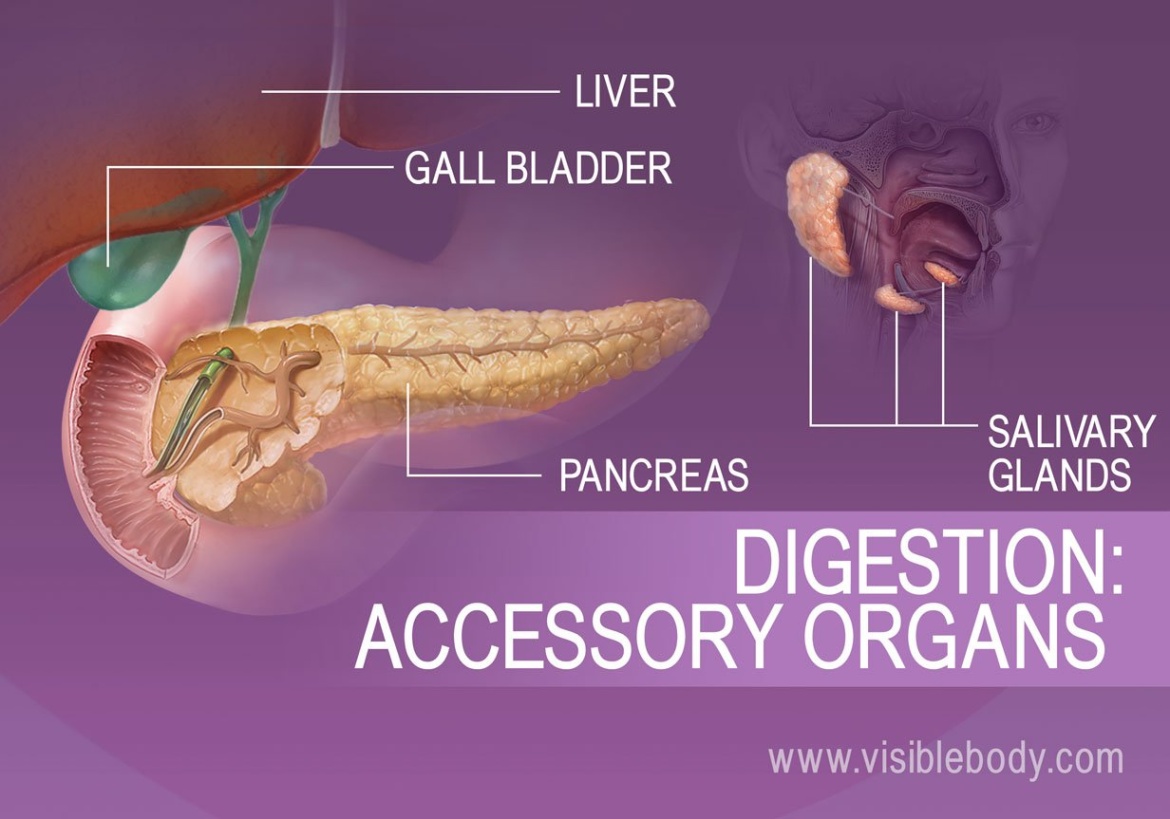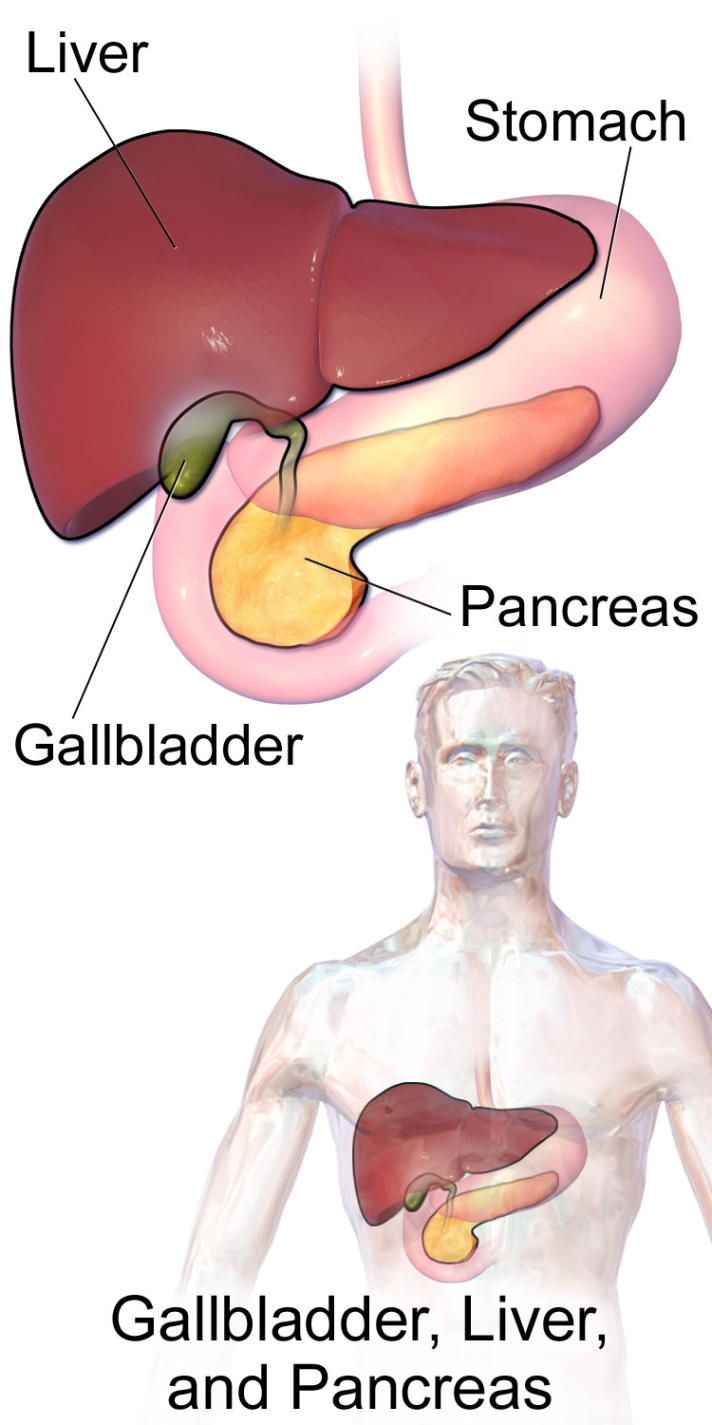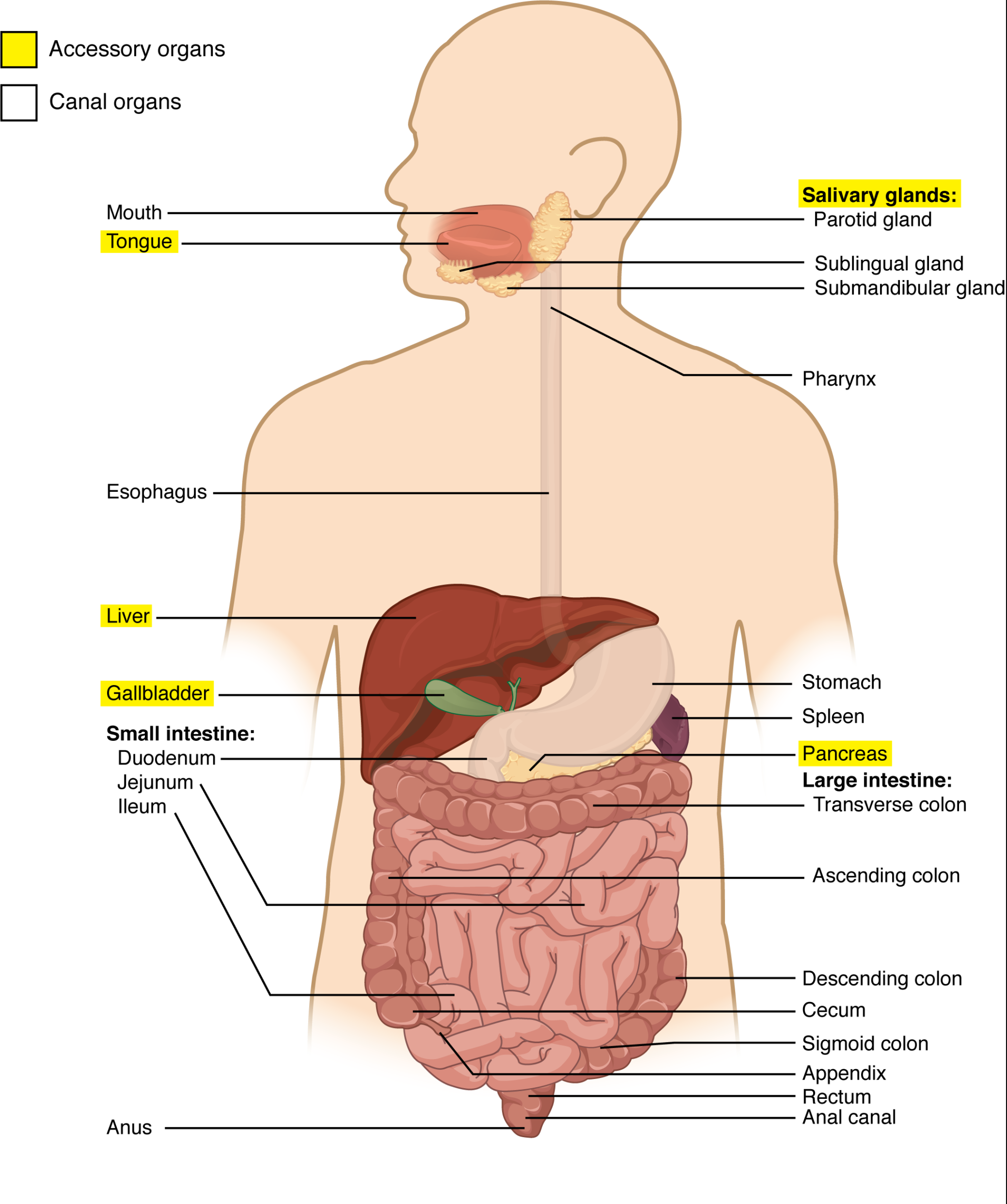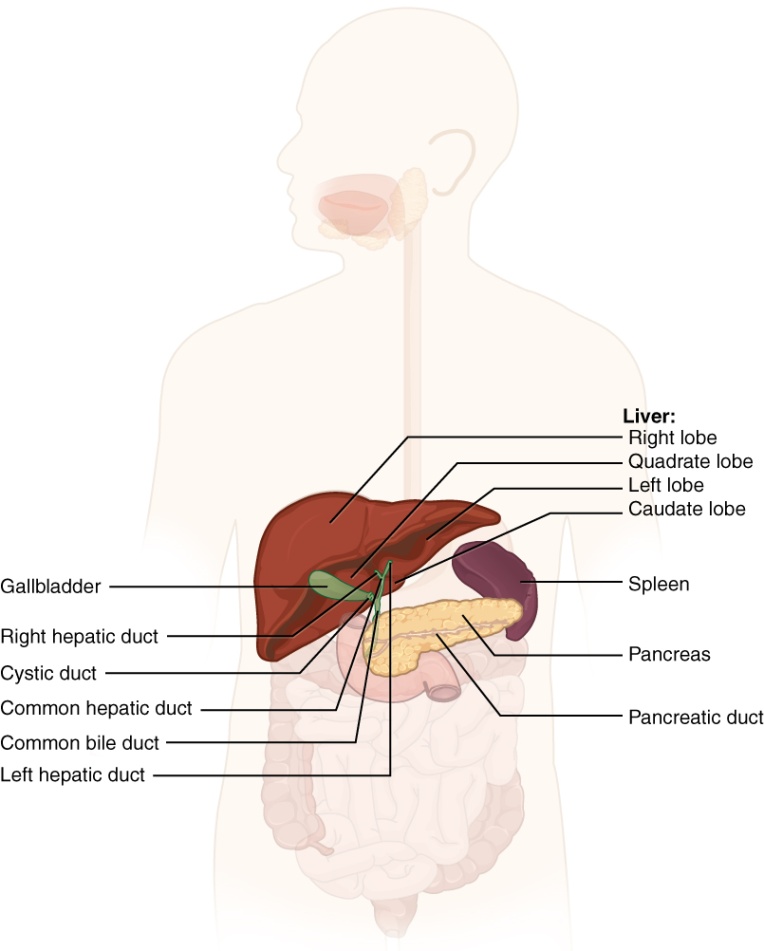Meet The Little Helpers: Glands That Aid Digestion In Your Belly

Tiny Saviors: Glands in Your Belly
Have you ever stopped to consider the incredible work that goes on inside your belly every day? Your digestive system is a well-oiled machine, with a team of tiny helpers working tirelessly to break down your food and extract the nutrients your body needs to thrive. Among these unsung heroes are the glands in your belly, which play a crucial role in aiding digestion and keeping you healthy.

Image Source: visiblebody.com
These glands, which are scattered throughout your digestive tract, produce and release important substances that help to break down food and facilitate the absorption of nutrients. One of the key players in this process is the gastric gland, which is found in the lining of your stomach. These glands secrete hydrochloric acid, which helps to break down food and kill off any harmful bacteria that may be present.
In addition to gastric glands, your belly is also Home to pancreatic glands, which release digestive enzymes that further break down carbohydrates, proteins, and fats. These enzymes play a vital role in ensuring that your body can extract the maximum amount of nutrients from the food you eat. Without these enzymes, digestion would be much less efficient, and you may not be able to absorb all the essential vitamins and minerals your body needs to function properly.

Image Source: pressbooks.tru.ca
Another important group of glands in your belly are the intestinal glands, which are found in the lining of your small intestine. These glands produce mucus, which helps to lubricate the walls of your intestine and protect them from damage. In addition, intestinal glands also release hormones that regulate digestion and control the movement of food through your digestive tract.
The work of these glands is truly remarkable, as they work in perfect harmony to ensure that your body can efficiently break down food and extract the nutrients it needs to thrive. Without the aid of these tiny helpers, digestion would be a much more challenging process, and your body may struggle to obtain all the essential nutrients it needs for optimal health.

Image Source: pressbooks.tru.ca
So, the next time you sit down to enjoy a meal, take a moment to appreciate the hard work of the glands in your belly. These tiny saviors may not get the recognition they deserve, but they play a vital role in keeping you healthy and ensuring that your body can function at its best. From gastric glands to pancreatic glands to intestinal glands, each one plays a unique and important role in the intricate dance of digestion. Give thanks to these little helpers, and remember to treat them well by fueling your body with nutritious foods that support their work. Your belly will thank you for it!
Get to Know Your Digestive Helpers
Have you ever stopped to think about the amazing work that goes on inside your belly every time you eat a meal? Your digestive system is a complex network of organs and glands that work together to break down the food you eat and extract the nutrients your body needs to function properly. Among the unsung heroes of this process are the tiny glands that produce important enzymes and hormones to aid digestion. Let’s take a closer look at these little helpers and how they keep your belly happy and healthy.

Image Source:
One of the most well-known digestive glands is the pancreas. This small organ plays a crucial role in digestion by producing enzymes that help break down proteins, fats, and carbohydrates in the food you eat. These enzymes are released into the small intestine where they work to further break down food particles so that your body can absorb the nutrients. In addition to enzymes, the pancreas also produces hormones like insulin and glucagon, which help regulate blood sugar levels. Without the pancreas, digesting food and maintaining proper blood sugar levels would be nearly impossible.
Another important digestive gland is the liver. This large organ is responsible for producing bile, which is essential for the digestion and absorption of fats. Bile is stored in the gallbladder and released into the small intestine to help emulsify fats, making it easier for enzymes to break them down. The liver also plays a key role in detoxifying harmful substances in the body and storing essential nutrients like vitamins and minerals. Without the liver, your body would struggle to process fats and eliminate toxins effectively.

Image Source:
The stomach is Home to its own set of digestive glands that help kickstart the digestion process. Gastric glands in the lining of the stomach secrete hydrochloric acid and enzymes like pepsin to break down proteins in the food you eat. These powerful digestive juices also help kill bacteria and other harmful pathogens that may be present in your food. Without the gastric glands, your stomach would struggle to digest proteins and protect your body from harmful invaders.
In addition to the pancreas, liver, and stomach, there are several other glands scattered throughout your digestive system that play important roles in digestion. The salivary glands in your mouth produce saliva, which contains enzymes that begin the process of breaking down carbohydrates. The intestinal glands in the lining of the small intestine release enzymes and hormones that further aid in digestion and nutrient absorption. Even the lining of the stomach and intestines contain glands that produce mucus to protect the delicate tissues from the harsh acids and enzymes involved in digestion.
Overall, these tiny glands work tirelessly behind the scenes to ensure that your digestive system functions properly and that your body receives the nutrients it needs to thrive. By getting to know your digestive helpers, you can develop a deeper appreciation for the intricate processes that keep your belly happy and healthy. So next time you sit down to enjoy a meal, take a moment to thank these little glands for all their hard work in keeping you nourished and energized.
Meet the Little Glands Keeping You Healthy
In the bustling city of your belly, there are tiny workers that often go unnoticed but play a crucial role in keeping you healthy and happy – the glands. These little helpers work tirelessly behind the scenes to aid in the digestion process and ensure that your body gets the nutrients it needs to function at its best.
The glands in your belly are like the unsung heroes of the digestive system. They may be small in size, but their impact on your overall health is immense. These glands are responsible for producing important substances that are essential for breaking down food and absorbing nutrients.
One of the key glands in your belly is the parietal cells, which are located in the lining of your stomach. These cells produce hydrochloric acid, which helps to break down food and kill any harmful bacteria that may be present. In addition, parietal cells also produce intrinsic factor, a protein that is necessary for the absorption of vitamin B12.
Another important gland in your belly is the chief cells, which are also found in the stomach lining. These cells produce pepsinogen, an enzyme that helps to break down proteins into smaller molecules that can be easily absorbed by the body. Pepsinogen is activated by the hydrochloric acid produced by the parietal cells, resulting in the formation of pepsin, which is crucial for protein digestion.
In addition to the glands in the stomach, there are also glands in the intestines that play a vital role in the digestion process. The enterocytes, which are cells lining the small intestine, produce enzymes that help to break down carbohydrates, fats, and proteins into their component parts. These enzymes are essential for the absorption of nutrients into the bloodstream.
The goblet cells, another type of gland in the intestines, produce mucus that helps to lubricate and protect the lining of the intestines. This mucus also helps to trap and remove harmful substances, such as bacteria and toxins, from the digestive tract. Without the mucus produced by the goblet cells, the delicate lining of the intestines would be vulnerable to damage and infection.
The pancreas is another gland that plays a crucial role in digestion. This organ produces digestive enzymes that are released into the small intestine to help break down carbohydrates, fats, and proteins. The pancreas also produces bicarbonate, a substance that helps to neutralize the acidic chyme (partially digested food) that enters the small intestine from the stomach.
All of these glands work together in harmony to ensure that the food you eat is properly digested and the nutrients are absorbed efficiently. Without the hard work of these little glands, digestion would be incomplete and your body would not receive the essential nutrients it needs to function properly.
So, the next time you sit down to enjoy a meal, take a moment to appreciate the little glands in your belly that are working tirelessly to keep you healthy and happy. They may be small, but their impact on your overall well-being is truly immense.
Cheerful Digestion: The Hidden Helpers
When it comes to digestion, we often think about the stomach and intestines doing all the heavy lifting. But did you know that there are tiny glands in your belly that play a crucial role in helping you break down food and absorb nutrients? These glands are like little helpers, working behind the scenes to ensure your digestive system runs smoothly and efficiently.
One of the most important glands in your belly is the pancreas. This small but mighty organ is located behind your stomach and is responsible for producing enzymes that help break down carbohydrates, proteins, and fats in the food you eat. These enzymes are essential for proper digestion and absorption of nutrients, making the pancreas a key player in keeping your digestive system healthy.
Another important gland that aids in digestion is the liver. While the liver is often associated with detoxification, it also plays a vital role in the digestion process. The liver produces bile, a substance that helps emulsify fats and aids in their digestion and absorption. Without bile, your body would struggle to digest fatty foods, leading to digestive issues and nutrient deficiencies.
The gallbladder is another gland that works closely with the liver to aid in digestion. This small organ stores and concentrates bile produced by the liver, releasing it into the small intestine when needed to help digest fats. The gallbladder may be often overlooked, but its role in digestion should not be underestimated.
In addition to the pancreas, liver, and gallbladder, there are several other glands in your belly that play a role in digestion. These include the gastric glands in the stomach, which produce stomach acid and enzymes that help break down food, and the intestinal glands in the small intestine, which secrete enzymes that further aid in digestion and absorption of nutrients.
While these glands may be small in size, their impact on digestion is significant. Without them, your body would struggle to break down food, absorb nutrients, and eliminate waste efficiently. By working together harmoniously, these hidden helpers ensure that your digestive system functions properly and keeps you healthy.
So the next time you sit down to enjoy a meal, remember to thank your little helpers in the belly. They may not get the recognition they deserve, but they play a vital role in keeping your digestive system running smoothly. Here’s to cheerful digestion and the amazing glands that make it all possible!
accessory digestive glands produce that empty into the gi tract.